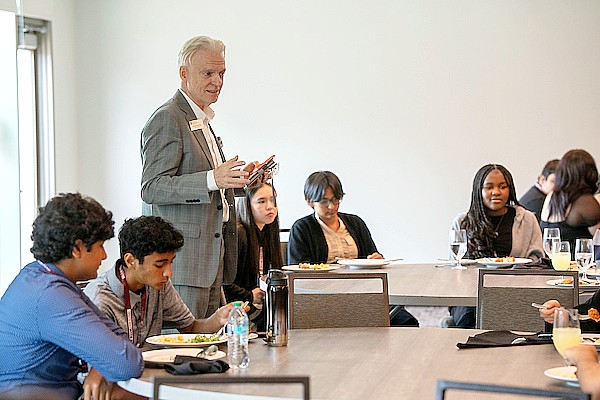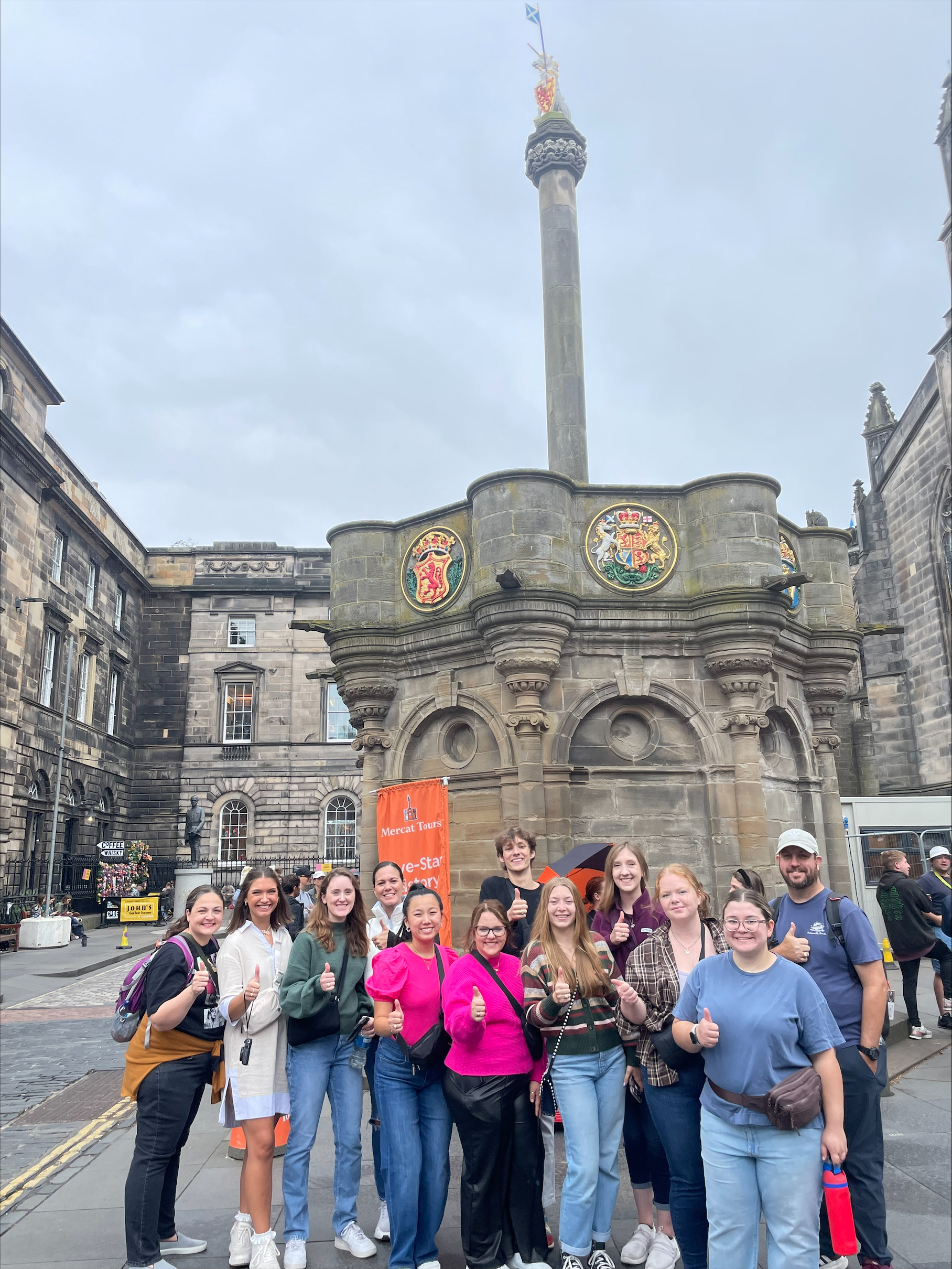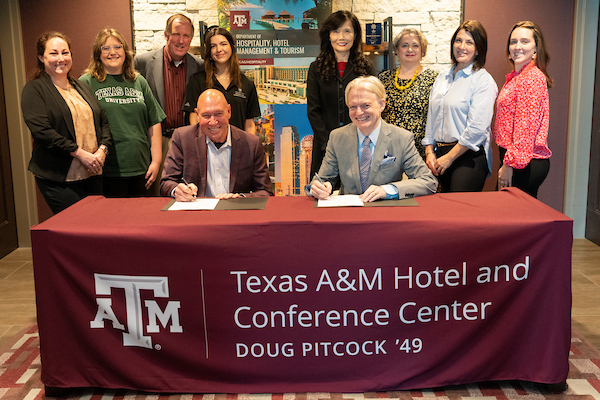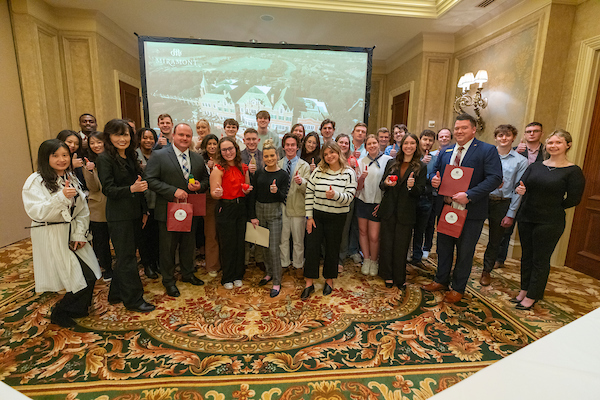Department of Hospitality, Hotel Management and Tourism celebrates first anniversary
Transformational year sets new path for hospitality and tourism education
The new Department of Hospitality, Hotel Management and Tourism in the Texas A&M College of Agriculture and Life Sciences made significant progress to meet the needs of students and the hospitality and tourism industry in Texas and beyond in its first year.
In 2023, the department was renamed and reformulated from the former Department of Recreation, Park and Tourism Sciences, which had established a nearly 60-year legacy of internationally recognized excellence in resource management, tourism and leisure sciences.

The department’s commitment is to provide a transformational educational experience that prepares a new generation of leaders in the hospitality, hotel management and tourism industry. To meet that goal, it has brought in new faculty with wide-ranging professional and scholarly experience, added new undergraduate degree tracks, increased internship opportunities and built new relationships across industries in which graduates will build careers.
Jeffrey W. Savell, Ph.D., vice chancellor and dean for Agriculture and Life Sciences, said the name change for the department reflects an expanded, scientifically based focus on an enhanced human experience with the world.
“This new direction and additional areas of expertise increases our ability to understand and foster relationships among people, our environments and economies,” Savell said. “There’s no better place than Texas A&M to study and experience hospitality.”
Hospitality and tourism expertise
Department head Brian King, Ph.D., said the past year’s efforts allowed faculty and students to capitalize on growth trends in the hospitality and tourism industry, propelling their expertise to areas where they can have a positive influence at state, national and global levels.
New faculty members from across the world have been hired to complement existing faculty and expand the expertise in hospitality and tourism.
“We have identified and hired faculty with varied professional expertise and research interests to embrace a holistic approach that serves the needs of our students and of industry,” King said. “And while we are paying particular attention to new and emerging issues in hospitality and tourism, we are still focused on the core areas that have served as the foundations of the department.”
New undergraduate degree tracks
In the past year, the department has also added three new undergraduate degree tracks in hospitality, hotel management and tourism – Hotel and Resort Management, Business Hospitality, and Event, Tourism and Recreation Management.

The Business Hospitality track is a unique degree plan that allows students to take classes in the department as well as in Mays Business School at Texas A&M.
“By adding new degree tracks, we are offering our students more avenues to pursue and align their academic interests with their career goals,” King said.
As a way of giving students more exposure to the scholarly work and research being done in the department, a Hospitality and Tourism Scholars Symposium was held earlier this year. The symposium gave students the opportunity to participate in scholarly exchange with leading researchers from across the nation and within the College, especially those with academic or professional links to aspects of hospitality and tourism.
Increased hands-on learning through industry collaborations
King said a key department goal is strengthening relationships with industry and community partners both within Texas and across the world.
He credits existing and new collaborations with industry organizations, community colleges, donors and others for the ability to provide students with a robust and comprehensive approach to learning, including internships, practical involvement in event management, study abroad opportunities and other means of getting exposure in the field.



“In the past year, the department has expanded its internship partnerships to give students more opportunities to experience the relationship between classroom theory and practical applications,” he said. “This approach enables them to acquire and develop the skills and competencies needed to transition into full-time roles in a hospitality or related career.”

King said one major initiative has been to partner more closely with the hospitality industry as exemplified by the signing of a memorandum of understanding with Texas A&M Hotel and Conference Center on the Texas A&M campus in College Station. The facility, operated by Pyramid Global Hospitality, offers students paid operational and supervisory internships in Texas, the U.S. and internationally through its portfolio of more than 240 hotel and resort properties.
Another example is the department’s association with Miramont Country Club in Bryan, which offers internships that provide students with a well-rounded view of club management and how each dimension of the business enhances the club member experience.
King said donor generosity in addition to the industry collaborations have helped provide opportunities for students, including a Disney Hospitality Operations Trip with Walt Disney; educational trips to the Caribbean, Scotland and England; and a first-ever study abroad to Antarctica.
Strategic guidance with an advisory board
Through such relationships, King said partners will serve as industry-based teachers, offering interns instruction and supervision in various operational divisions to acquire and develop professional competencies.

To further enhance ties to the industry, the department formed an advisory board to provide strategic advice and offer expert guidance on the development of new partnerships. Robert “Hunter” Goodwin, who serves as head of the advisory board, is the owner, chief operating officer and director of hospitality at Oldham Goodwin Group LLC in Bryan-College Station.
“The advisory board is a tool for the department to use in establishing and reaching its goals,” Goodwin said. “We want to take the reputation established by the former department and of Texas A&M University as a whole and expand that into new areas of hospitality, hotel management and tourism. Some of our efforts will include building new partnerships and reaching out to parents, teachers, guidance counselors and youth to make them aware of career opportunities in hospitality and tourism.”
Looking to the future
King said this summer a new cohort of top-notch graduate students arrived to support new research opportunities as the department’s scholars broaden their reach and explore new domains such as wellness, sustainability, the use of artificial intelligence and post-COVID travel.
“During the next year, we will add three more new professors with expertise in various areas of hospitality, hotel management and tourism,” he said. “One of our primary goals in bringing together faculty resources with varied expertise is to help mobilize the visitor economy in Texas and attract global interest and recognition. This also helps solidify our approach to research, outreach and instruction, opening doors for our faculty and students to benefit our core areas and the hospitality and tourism industry.”
For more information on the Department of Hospitality, Hotel Management and Tourism, go to https://hmgt.tamu.edu/.


